The Book of Ayub, revered in Judeo-Christian traditions as Job, stands as a profound exploration of suffering, faith, and the human condition. Written in a poetic literary style, this ancient text employs rich imagery and dialogue to convey the trials of its protagonist, Ayub, whose piety is put to the ultimate test through enduring afflictions and existential questions. The book's setting within the wisdom literature of the Hebrew Bible situates it amid broader themes of divine justice and human righteousness, as it intricately weaves philosophical discourses with poignant emotional depth. The author of this ancient work remains anonymous, yet the narrative reflects a deep engagement with the theological and existential dilemmas of its time. Likely composed during the Babylonian Exile, the work resonates with a historical context of suffering and loss, perhaps mirroring the experiences of a community grappling with divine silence in the face of pervasive anguish. This personal and communal suffering informs the book's exploration of faith under duress, evoking both empathy and introspection. I highly recommend The Book of Ayub to readers interested in the exploration of human suffering and resilience. Its timeless themes and deep philosophical inquiries resonate today, inviting reflections on the nature of faith and the complexities of life. This text serves not only as a literary masterpiece but also as a catalyst for profound existential contemplation.
The Book of Ayub, known in the west as Job
Start din 14-dagers gratis prøveperiode
- Full tilgang til hundretusener av lydbøker og e-bøker i vårt bibliotek
- Opprett opptil 4 profiler – inkludert barneprofiler
- Les og lytt offline
- Abonnement fra 149 kr per måned

The Book of Ayub, known in the west as Job
The Book of Ayub, revered in Judeo-Christian traditions as Job, stands as a profound exploration of suffering, faith, and the human condition. Written in a poetic literary style, this ancient text employs rich imagery and dialogue to convey the trials of its protagonist, Ayub, whose piety is put to the ultimate test through enduring afflictions and existential questions. The book's setting within the wisdom literature of the Hebrew Bible situates it amid broader themes of divine justice and human righteousness, as it intricately weaves philosophical discourses with poignant emotional depth. The author of this ancient work remains anonymous, yet the narrative reflects a deep engagement with the theological and existential dilemmas of its time. Likely composed during the Babylonian Exile, the work resonates with a historical context of suffering and loss, perhaps mirroring the experiences of a community grappling with divine silence in the face of pervasive anguish. This personal and communal suffering informs the book's exploration of faith under duress, evoking both empathy and introspection. I highly recommend The Book of Ayub to readers interested in the exploration of human suffering and resilience. Its timeless themes and deep philosophical inquiries resonate today, inviting reflections on the nature of faith and the complexities of life. This text serves not only as a literary masterpiece but also as a catalyst for profound existential contemplation.

B. J. Harrison Reads Sinbad the Sailor
Anonymous
audiobook
The Book of Enoch
Anonymous
book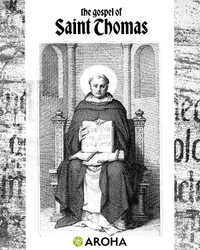
the gospel of Saint Thomas
Anonymous
book
The Collected Norse Sagas : Epic Norse Mythology and Viking Sagas: Tales of Gods, Heroes, and Myths from Ancient Scandinavia
Anonymous, Snorri Sturluson
book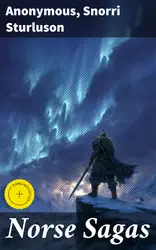
Norse Sagas : Exploring the Epic Legacy of Norse Mythology and Viking Heroes
Anonymous, Snorri Sturluson
book
Aphrodite in Bloom
Anonymous
audiobook
The Ladies' Work-Book. Containing Instructions In Knitting, Crochet, Point-Lace, etc : Mastering 19th-Century Needlework Techniques for Women's Creativity
Anonymous
book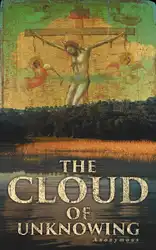
The Cloud of Unknowing : A Spiritual Guide to Contemplative Prayer
Anonymous
book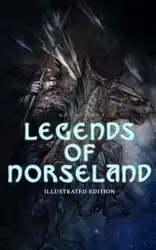
Legends of Norseland (Illustrated Edition) : Valkyrie, Odin at the Well of Wisdom, Thor's Hammer, the Dying Baldur, the Punishment of Loki, the Darkness That Fell on Asgard
Anonymous
book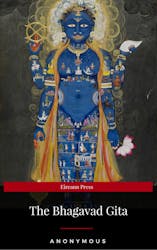
Bhagavad Gita (Shambhala Library)
Anonymous
book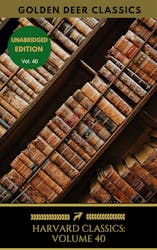
Harvard Classics Volume 40 : English Poetry 1: Chaucer To Gray
Geoffrey Chaucer, Golden Deer Classics, Anonymous, Thomas Wyatt, Henry Howard, George Gascoigne, Edward Dyer, John Lyly, Thomas Lodge, George Peele, Robert Southwell, Samuel Daniel, Michael Drayton, Henry Constable, Edmund Spenser, William Habington, Christopher Marlowe, Richard Rowlands, Thomas Nashe, William Shakespeare, Robert Greene, Richard Barnfield, Thomas Campion, Robert Devereux, Henry Wotton, Edward de Vere, Ben Jonson, John Donne, Joshua Sylvester, William Alexander, Richard Corbet, Thomas Heywood, Thomas Dekker, Francis Beaumont, John Fletcher, John Webster, William Drummond, George Wither, William Browne, Robert Herrick, Francis Quarles, George Herbert, Henry Vaughan, Francis Bacon, James Shirley, Thomas Carew, John Suckling, William D'Avenant, Richard Lovelace, Edmund Waller, William Cartwright, James Graham, Richard Crashaw, Thomas Jordan, Abraham Cowley, Alexander Brome, Andrew Marvell, Earl of Rochester, Charles Sedley, John Dryden, Matthew Prior, Isaac Watts, Lady Grisel Baillie, Joseph Addison, Allan Ramsay, John Gay, Henry Carey, Alexander Pope, Ambrose Philips, Colley Cibber, James Thomson, Thomas Gray, George Bubb Dodington
book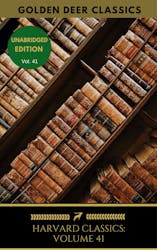
Harvard Classics Volume 41 : English Poetry 2: Collins To Fitzgerald
William Collins, Golden Deer Classics, George Sewell, Alison Rutherford Cockburn, Jane Elliot, Christopher Smart, Anonymous, John Logan, Henry Fielding, Charles Dibdin, Samuel Johnson, Robert Graham Gartmore, Adam Austin, William Cowper, Richard Brinsley Sheridan, Anna Laetitia Barbauld, Isobel Pagan, Lady Anne Lindsay, Thomas Chatterton, Lady, Alexander Ross, John Skinner, Michael Bruce, George Halket, William Hamilton Bangour, Hector MacNeil, William Jones, Susanna Blamire, Anne Hunter, John Dunlop, Samuel Rogers, William Blake, John Collins, Robert Tannahill, William Wordsworth, William Lisle Bowles, Samuel Taylor Coleridge, Robert Southey, Charles Lamb, James Hogg, Robert Surtees, Thomas Campbell, J. Campbell, Allan Cunningham, George Gordon, Thomas Moore, Charles Wolfe, Percy Bysshe Shelley, James Henry Hunt, John Keats, Walter Savage Landor, Thomas Hood, Aubrey De Vere, Hartley Coleridge, Joseph Blanco White, George Darley, Thomas Babington Macaulay, Hugh Miller, Charles Tennyson Turner, Samuel Ferguson, Elizabeth Barrett Browning, Edward FitzGerald
book